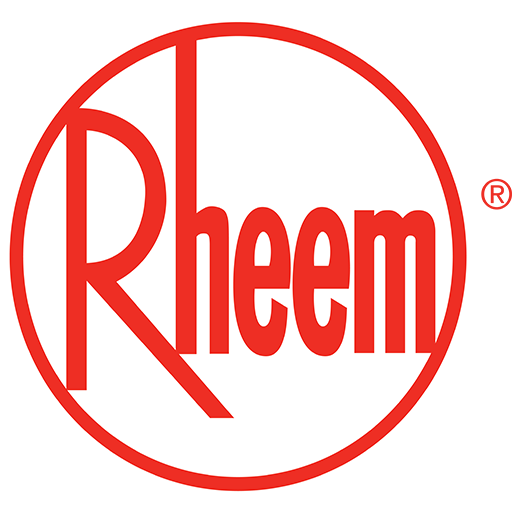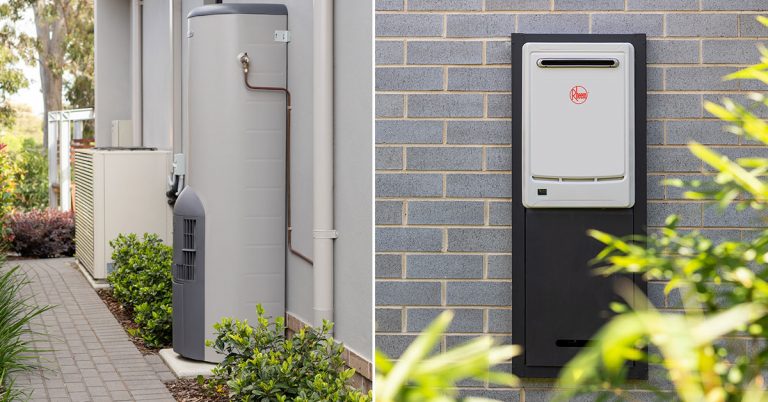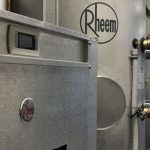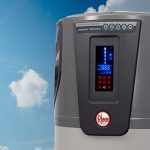Gas water heaters are a popular option to deliver a steady, hot and strong flow of hot water for your household. There are two types of gas water heaters – storage and continuous flow – and both are great solutions to your hot water needs.
In this article, we will explore the key differences between the two, as well as which option might be better for your household.
The difference between Gas Storage and Gas Continuous Flow
Gas storage heats water in the tank, and stores a generous quantity ready for your use. A key benefit of a gas storage water heater is that it supplies hot water at mains pressure, which means you can run several taps and showers at once without loss of pressure.
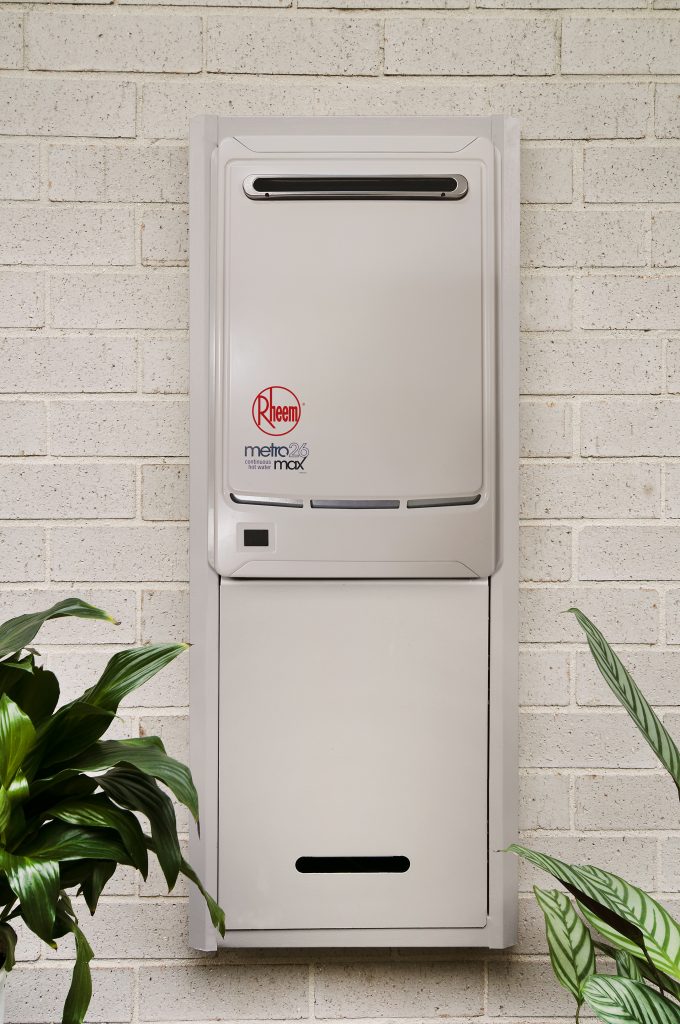
Gas continuous flow, also known as ‘instantaneous’ or ‘tankless’, heats water as you use it. It delivers hot water that never runs out, as the water is heated when you need it, for as long as you need it. So, compared to a storage water heater, a continuous flow water heater doesn’t store hot water, but rather heats it on demand.
Also, a continuous flow unit is compact and wall-mounted. It can also be recessed into the wall providing a streamlined finish, as shown in the image on the left.
Which option is right for you?
The answer ultimately depends on your situation. It depends on the size of your home, number of bathrooms and hot water outlets, as well as how you tend to use hot water.
Here, we will explore why either storage or continuous flow may be right for your household. If you would like more information, you can contact Rheem or ask your local plumber.
Why Rheem Gas Storage:
- Mains pressure storage will provide you with a steady, hot and strong flow of water for all your needs
- 5-star energy rating to reduce your energy consumption. In fact, higher-efficiency gas storage water heaters cost less to run. As a guide, every extra energy-rating star represents approximately 7% less gas usage, which can mean savings in energy bills.¹
- Gas storage models do not need an electrical connection.
- If you use a lot of hot water, Rheem’s high recovery models heat water fast (up to 200L per hour)² to reduce the worry about running out of hot water.
- 10-year cylinder warranty on all models.3
Why Rheem Gas Continuous Flow:
- If you have a number of people in your household using hot water at the same time of day (e.g. morning showers), continuous flow is a good choice as it heats water on demand.
- Typically, gas continuous flow water heaters deliver hot water at lower pressure than storage. However, with the Rheem Q Factor, you can run multiple taps without loss of pressure.
- 6-star energy rating to save money and the environment.
- The unit takes up less space as it is mounted to a wall.
- Rheem’s Flamesafe overheat protection automatically shuts down your water heater should it overheat.
After more information?
Both gas storage and gas continuous flow come in a range of sizes suitable for every family, and are ideal if you have a busy household.
To find out more about which option is right for you, contact Rheem or ask your local plumber today.
Disclaimers:
1 – Refer to your energy provider for confirmation.
2 – Based on 45oC temperature rise
3 – Warranty: 10 year cylinder warranty, 1 year labour on cylinder, 1 year parts and labour warranty on all other components for domestic (non-commercial) installations. Conditions apply, see the Rheem warranty set out in the product Owner’s guide or view it here.
